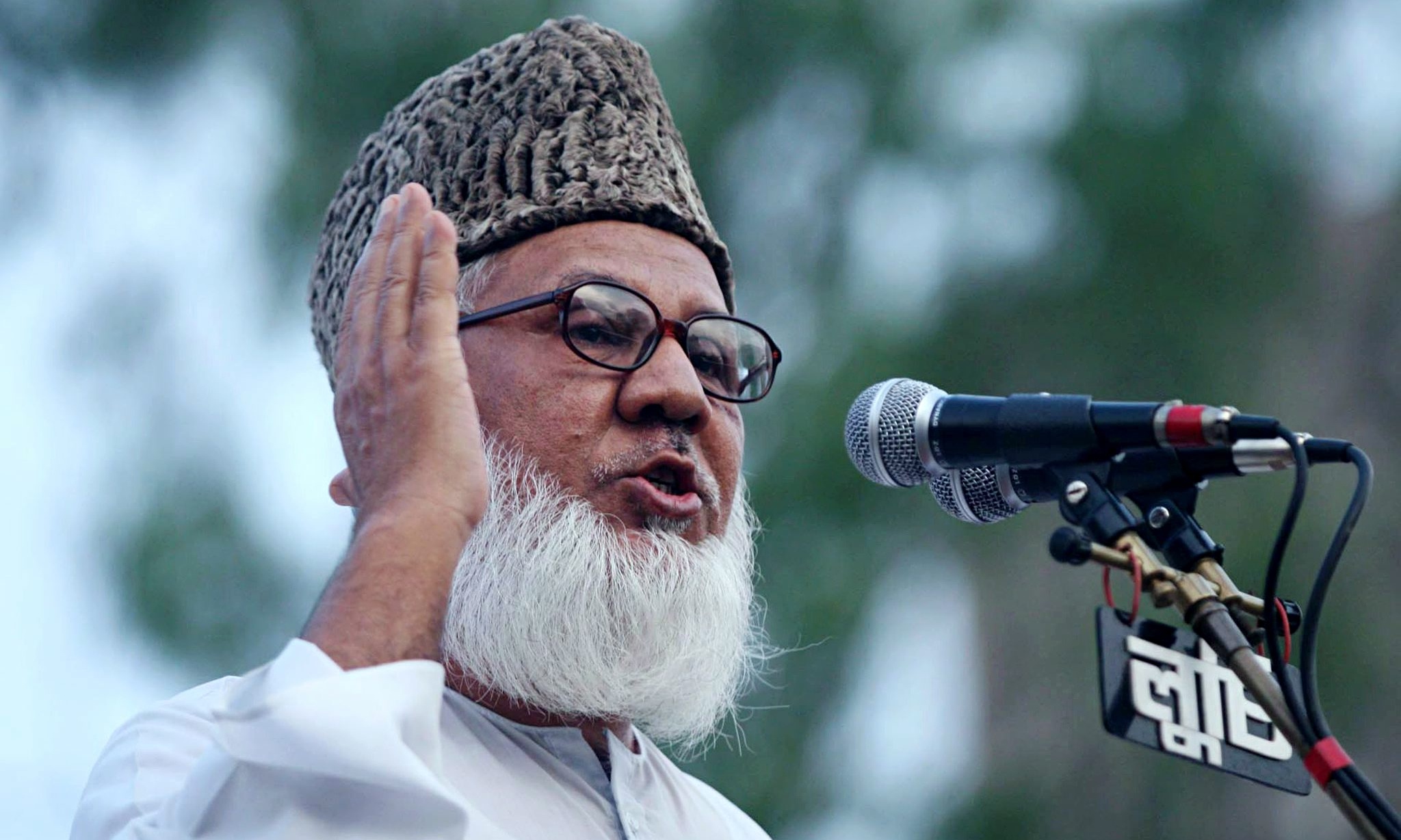Bangladesh Hangs Jamaat 'War Crimes' Leader

NEW DELHI: Jamaat-e-Islami leader, Motiur Rahman Nizami, 73, was hanged in Bangladesh early Wednesday morning for crimes during the war of independence from Pakistan in 1971.
Nizami, who led the Jamaat-e-Islami -- Bangladesh’s largest Islamist party -- was awarded the death penalty in October 2014 on four charges of war crimes that included the killings of intellectuals at the end of the 1971 Bangladesh Liberation War. The International Crimes Tribunal has also found Nizami guilty of eight of the 16 charges levelled against him stating that while claiming to be an Islamic scholar, he had misinterpreted the Quran to encourage his followers to indulge in genocide. The trial had been on for 40 years.
Last week, Bangladesh’s Supreme Court upheld the verdict and Nizami did not submit a plea for mercy to the president. "Nizami did not seek mercy. The executive order to carry out the death sentence has been sent to the prison authorities," Home Minister Asaduzzaman Khan said prior to the execution.
As people gathered near the prison in the capital city of Dhaka to celebrate the hanging, Bangladesh prepared for for violence as past executions of Islamist leaders have set off street protests across the country.
The Jamaat leader was buried at his village home in Santhia upazila in Pabna just hours after the execution on Wednesday morning. The Daily Star reports: Nizami’s son Nazib Momen received the body at their village home at Monmothpur around 6:20am, our Pabna correspondent reports from the spot. Relatives and a few locals attended his namaz-e-janaza held at a madrasa at Monmothpur before he was buried around 7:15am.
Bangladeshi authorities began conducting war crimes trials intended to hold people accountable for acts committed during the 1971 struggle for independence from Pakistan in 2009.
Nizami was the last high-profile suspect to be tried for 1971 war crimes. With the latest execution, five leaders accused of war crimes in 1971 -- Jamaat leaders Abdul Quader Mollah, AHM Kamaruzzaman, Ali Ahsan Mohammad Mojaheed and BNP leader Salauddin Quader Chowdhury -- have been executed. Two others - Jamaat leader Ghulam Azam and BNP leader Abdul Alim who had been sentenced to imprisonment unto death - died in jail.
The trials have widened a gulf between proponents of a more secular nature of Bangladesh’s nationalism and Islamist groups, with violence often targeting secular writers, bloggers, atheists and others. In April this year alone, five such intellectuals have been hacked to death -- with officials pointing a finger to Islamist groups but taking no action to identify and bring the perpetrators to justice.
The war crimes tribunal was set up by Prime Minister Sheikh Hasina in 2010, and her opponents decry that it is being used for political vendetta. According to the Bangladesh government, about three million people were killed and thousands of women were raped during the 1971 war in which some factions, including the Jamaat-e-Islami, opposed the break from what was then called West Pakistan. The Jamaat on its part denies that its leaders committed any atrocities. Calling Nizami a "martyr", it said he was deprived of justice and made a victim of a political vendetta. On Saturday the group made a statement saying that "question doesn't arise at all to seek mercy to anybody else except Allah".
On the other hand, the tribunal is not without criticism, as international groups have pointed to flaws with the war crime trials, saying that the accused had little opportunity to defend themselves. A statement last week by a bipartisan human rights commission of the United States House of Representatives noted that defendants were allowed only a handful of witnesses and were not allowed to cross-examine prosecution witnesses.
“While many in Bangladesh believe Nizami to be guilty and want him punished, justice is only served through fair trials,” Brad Adams, the Asia director at Human Rights Watch, said last week.



